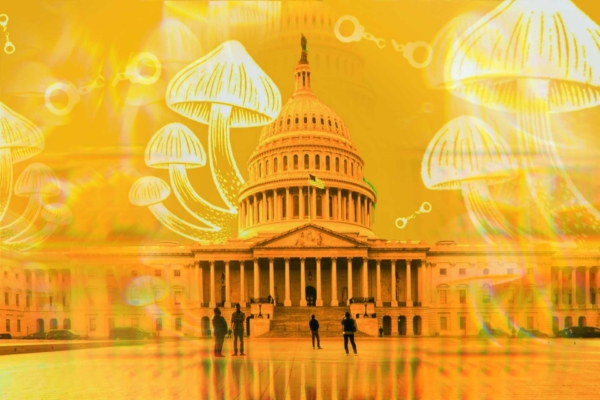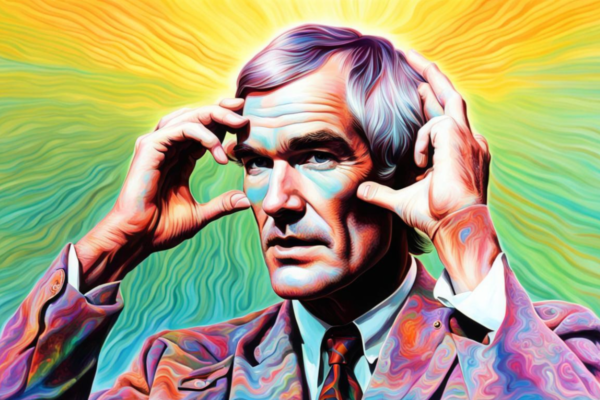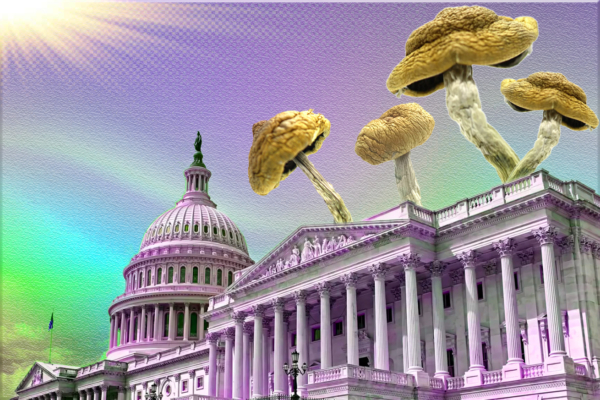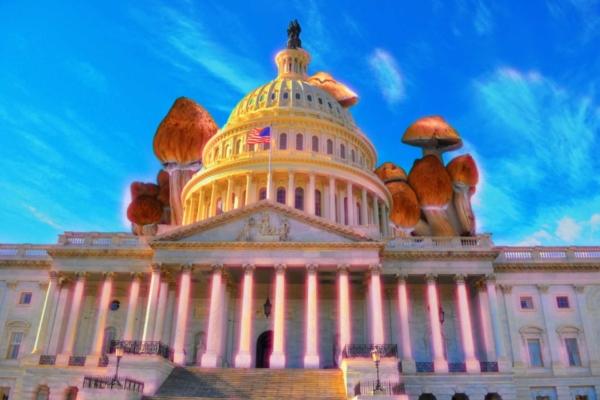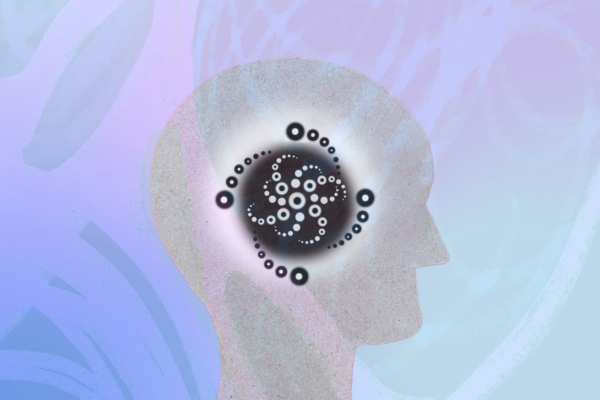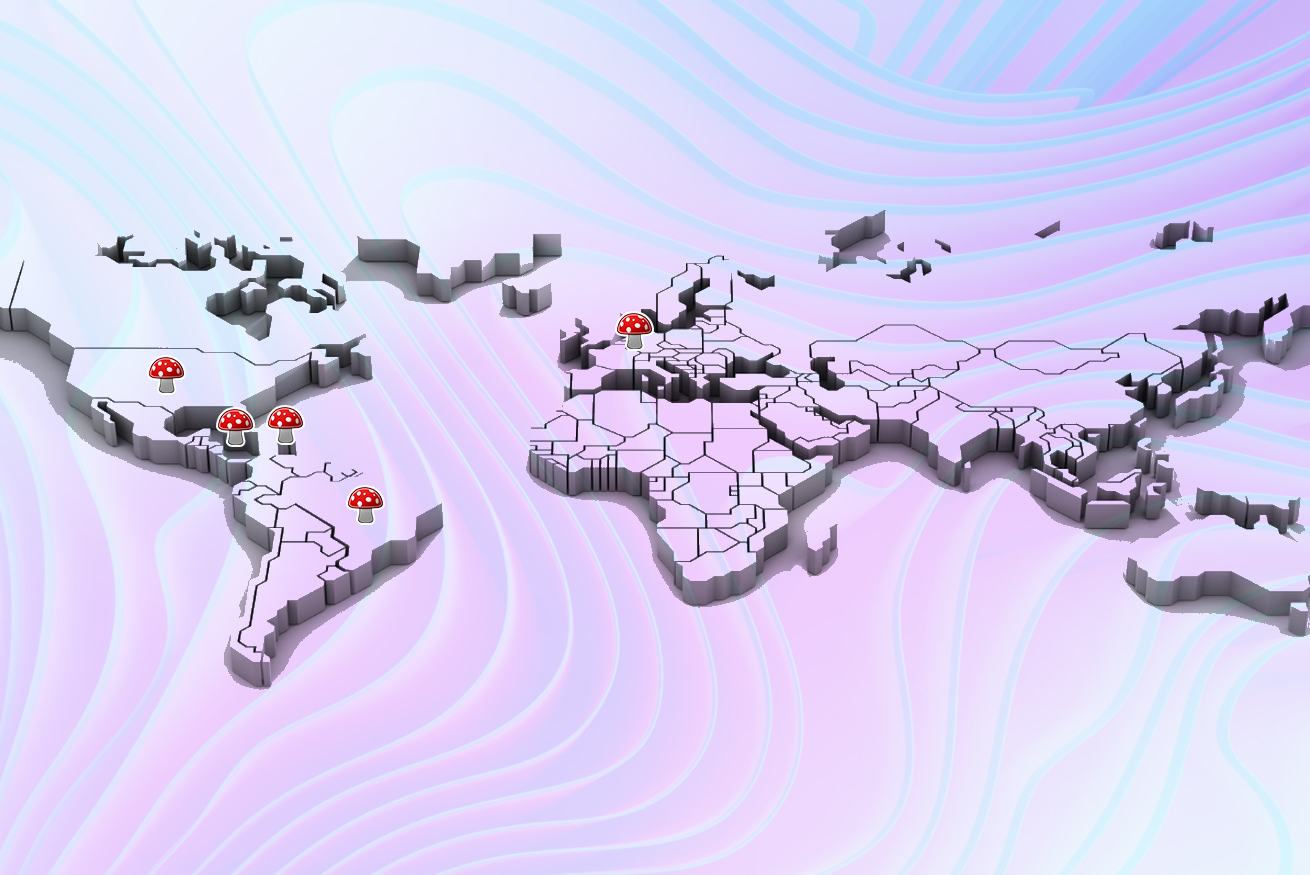
As clinical studies continue to show that psychedelics can improve mental health, individuals from across the world have begun considering experimenting with substances such as psilocybin and ayahuasca. There is only one problem: in most countries the personal use of such compounds remains highly illegal, with severe punishments for those who use it. But are there any countries where psychedelics are legal?
The international laws governing psychedelics are beginning to change. Nations from across the planet have begun turning the last pages on the decades-long global war on drugs. And while for most countries this means less severe punishments and transitioning from jail time to fines or mandatory rehab, some have flat out legalized certain psychedelics.
You may also like: Where are Psilocybin Mushrooms Legal or Decriminalized Around the World?
Join Sayulita’s 4-Day Rejuvenating Retreat
While this list is set to grow over the coming months, in this article I will examine 5 countries where at least some psychedelics are completely legal —or are in the process of becoming legal— to consume. The rules and regulations surrounding psychedelics vary in each jurisdiction, so make sure to do your homework before planning a psychedelic ceremony vacation.
#6: Australia
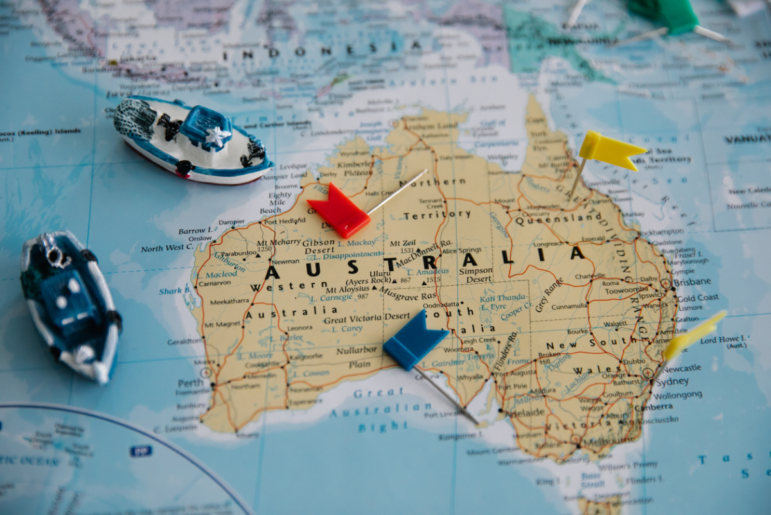
In July, 2023, Australia became the first country to allow physicians to prescribe psilocybin to for the treatment of resistant depression and MDMA to treat post-traumatic stress disorder (PTSD).
Psilocybin and MDMA which were classified as Schedule 9 of the Poisons Standard were relocated to Schedule 8 and classified under controlled drugs.
Now, let’s make it clear, only authorized psychiatrists in Australia are able to prescribe MDMA and psilocybin, as part of therapy, and this is executed in controlled clinical settings for patients suffering from psychiatric conditions due to their specialized qualifications and experience. To gain prescribing approval, psychiatrists must submit an application to a Human Research Ethics Committee (HREC) and to the Therapeutic Goods Administration (TGA). In other words, this means that without proper authorizations, possession of MDMA and psilocybin under Schedule 8 will be considered illegal (e.g., possessing it outside a valid prescription).
#5: The USA
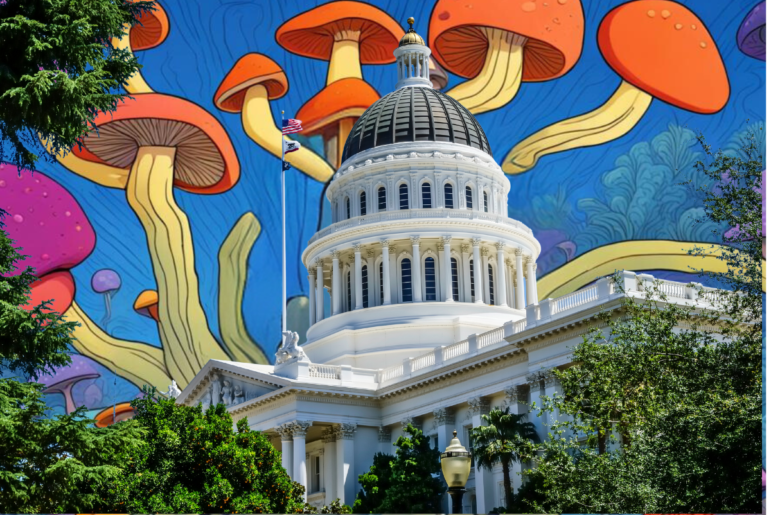
It is perhaps best to start in the United States. Not only did the War on Drugs originate here, but the country also strong-armed much of the rest of the world into following its lead.
While it’s true that across the nation most psychedelics remain illegal, due to the USA’s heavily decentralized nature, several states have started the process to legalize at least certain psychedelics.
The state furthest advanced in this process is Oregon. In 2020, Oregon residents voted in a ballot initiative to legalize psilocybin healing centers, and in May 2023, the state opened its first licensed regulated psilocybin service center, making it also the first in the United States, allowing all adults over the age of 21 to legally receive psilocybin-assisted therapy. Oregon has also decriminalized the possession of most drugs, including psychedelics.
In 2022, Colorado became the second state to decriminalize psychedelics, removing possession of small amounts of most entheogens as a criminal offense, which is now treated as a civil infraction. Proposition 122 will go into effect Jan. 1, 2024, setting the date for drug testing standards and health/safety warnings to be put into place. On Sept. 30 of that year, licensed facilities will begin being able to administer psilocybin to those in need.
Meanwhile, MDMA-assisted therapy for the treatment of PTSD is on track to be considered for approval by the FDA in 2024, according to MAPS founder and president Rick Doblin.
While Oregon and Colorado were the first dominos to fall, other states such as California are following their lead.
In June 2019, Oakland’s City Council voted unanimously to decriminalize the use of all psychoactive or hallucinogenic drugs, including mushrooms and cacti, ultimately becoming the second city in the country to do so. A few months later, in February 2020, the city of Santa Cruz became the third city in the states to decriminalize psychoactive plants and fungi at a personal level, with the aim to prioritize harm reduction and therapeutic potential over criminalization. It is important to note that these ordinances to do not apply to synthetic psychedelics such as LSD or MDMA. Later, in October 2021, Arcata became the third city in California to decriminalize the possession, cultivation, and distributions of hallucinogenic plants and fungi. This made entheogenic substances like psilocybin and ayahuasca the city’s lowest law enforcement priorities.
#4: The Netherlands
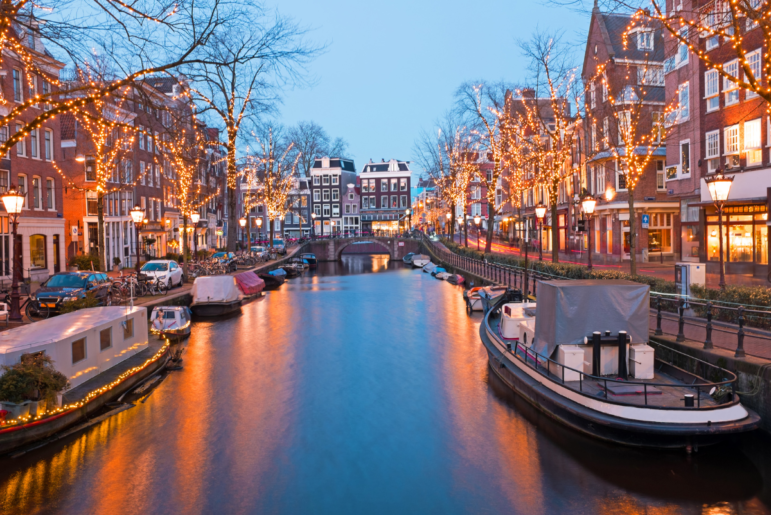
Despite having beautiful architecture, thousands of years of history, and some of the most friendly people you will ever meet, when it comes to tourism, the Netherlands is perhaps best known as that place with legal marijuana and magic truffles. And while marijuana isn’t technically legal —though this really is just a technicality, there is a controlled market and you can buy it in stores— psilocybin truffles are.
How this came to be is a saga in and of itself. Despite psilocybin mushrooms being illegal, psilocybin truffles —the fruiting body of a fungus— are not. In short, there was a loophole in the law banning magic mushrooms which never got plugged. This resulted in psilocybin truffles being legally sold in “Smart Shops” across the Netherlands. And despite this coming to be through legislative overlook, since the law banning psilocybin mushrooms was passed in 2008, there has not been a serious effort to add psilocybin truffles to the list of banned substances.
Not only does this mean individuals can buy psilocybin truffles at Smart Shops, but there is also a burgeoning psilocybin-assisted therapy and retreat scene opening up. As citizens from around the world look to try legal psilocybin-assisted therapy to improve their mental health, the Netherlands is becoming a hot destination.
#3: Jamaica
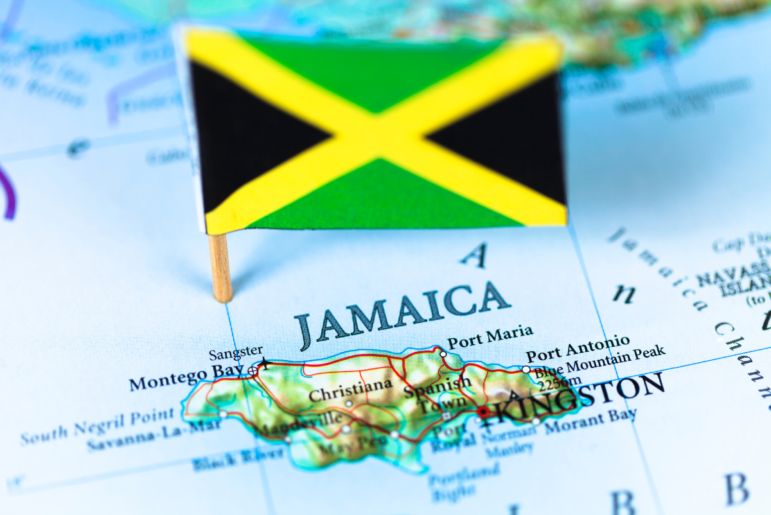
Even during the height of the War on Drugs, Jamaica never made psilocybin mushrooms illegal. Despite this, the production and sale of magic mushrooms was traditionally relegated to the informal economy. That is starting to change.
In 2021, the first legal functional and psychedelic mushroom retail outlet was opened in Jamaica by the company Silo Wellness, followed by Beckley Retreats and Mycelia. Since then, more shroom shops have popped up across Bob Marley’s homeland. Likewise, psilocybin healing centers and retreats have been blooming across the island nation, attracting not only local residents, but also international travelers. As a result, Jamaica is quickly becoming an internationally renowned psychedelics tourist destination.
#2: The Bahamas
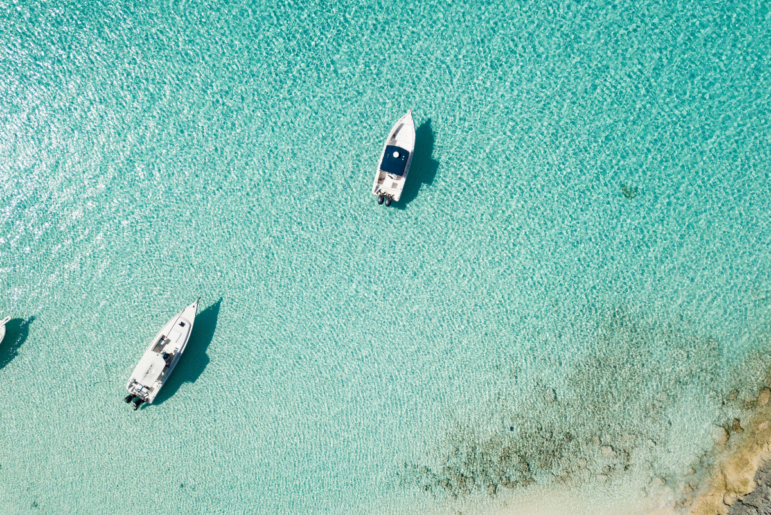
Staying in the Caribbean, in the Bahamas psilocybin mushrooms are also legal to grow and sell—though psilocybin itself is a controlled substance. And like in Jamaica, there have been psilocybin health and wellness retreats opening across the islands in recent years.
Going further, however, in the Bahamas not only do certain resorts offer psilocybin mushrooms-assisted healing, many also offer ibogaine treatment for addiction. And at least one also offers 5-MeO-DMT treatment!
Located only 50 miles from the Florida coast, the Bahamas are perfectly situated for curious American tourists who can’t wait until Oregon’s psilocybin centers open next year.
#1: Brazil
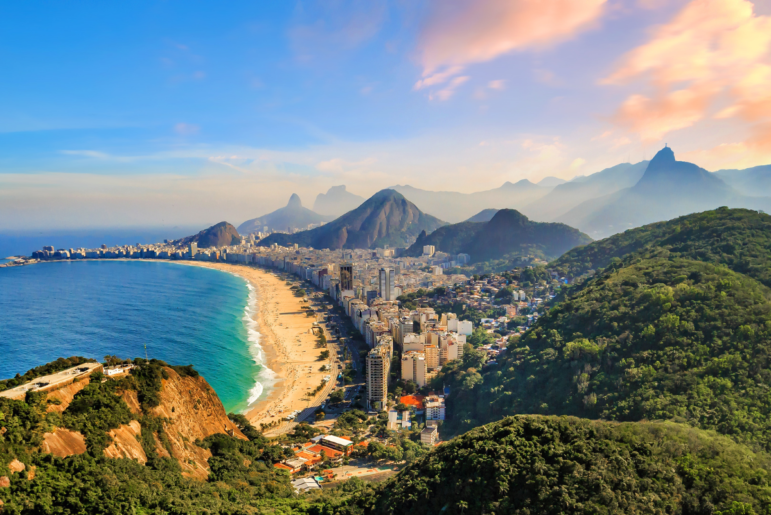
Brazil takes the cake in this listicle of countries where psychedelics are legal. While psilocybin mushrooms are basically legal in Brazil —though their sale remains almost entirely in the informal market— the fact that the Latin American giant has also legalized ayahuasca gives them the top rank.
Ayahuasca is a brew containing DMT that can cause a psychedelic experience lasting around 4 to 6 hours. Used traditionally by many native and Christian communities in the Amazon, ayahuasca retreats in Brazil have become so popular that people from across the world make the journey.
Honorable Mentions
There are many other countries that have at least in part legalized certain psychedelics. Special honorable mentions go to Nepal where psychedelic mushrooms are legal, though they are sold in informal markets; Mexico, where people can semi-legally attend ibogaine healing centers; Peru, who has also legalized ayahuasca; and Portugal, which has decriminalized all drugs. Magic mushrooms are also legal to possess and consume in the British Virgin Islands, but their sale is illegal. Let’s also not forget that in 2009, Czechia decriminalized the possession of small quantities of psilocybin mushrooms for personal use. Nevertheless, mushrooms are illegal as the country.


